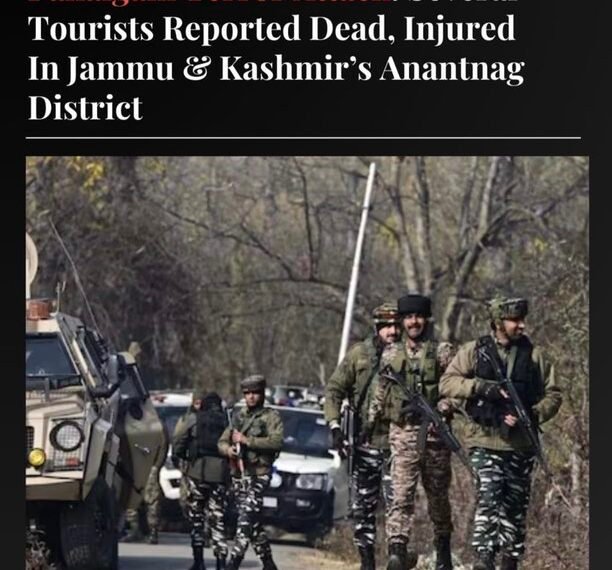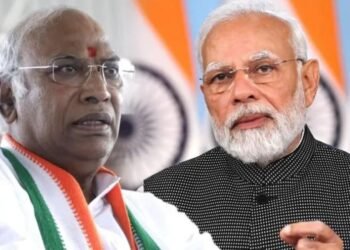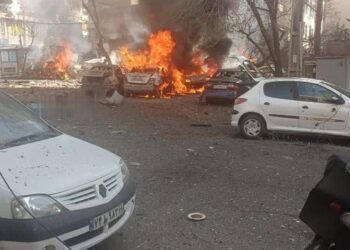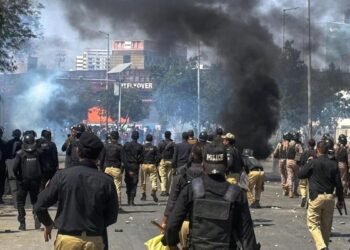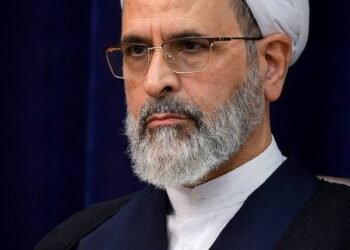In the shadow of the serene Baisaran Valley, terror struck hard—tourists, a Navy officer, and locals lost to a targeted assault that could reshape Indo-Pak relations
By PC Bureau
The devastating terror attack in Pahalgam, Jammu and Kashmir, which claimed 26 lives, including tourists, locals, and an Indian Navy officer, has reignited India’s long-standing grievances against Pakistan’s alleged support for cross-border terrorism. As New Delhi vows a “befitting reply” to the assault, attributed to The Resistance Front (TRF), a proxy of the Pakistan-based Lashkar-e-Taiba (LeT), analysts and officials speculate on the likelihood and nature of India’s potential retaliation. With both nations on edge, the coming days could mark a critical juncture in India-Pakistan relations.
The attack, executed in the scenic Baisaran meadow on Tuesday afternoon, targeted unsuspecting tourists, making it the deadliest civilian assault in Kashmir since the 2019 Pulwama attack, which killed 40 CRPF personnel. Indian authorities have pointed to Pakistan, citing intelligence that the attackers, including suspected Pakistani nationals, conducted reconnaissance of tourist sites in early April. Prime Minister Narendra Modi, cutting short a visit to Saudi Arabia, condemned the attack and assured that “those behind this heinous act will not be spared.” Union Home Minister Amit Shah, now in Srinagar to review security, echoed this resolve, promising “the harshest consequences” for the perpetrators.
Also Read: Pahalgam Terror Attack: 25 Tourists Feared Dead in Targeted Assault on Baisaran Valley
India’s history of responding to Pakistan-linked terror attacks provides context for the current speculation. Following the 2016 Uri attack, India conducted “surgical strikes” across the Line of Control (LoC), targeting terrorist launchpads. In 2019, after the Pulwama bombing, the Indian Air Force struck a Jaish-e-Mohammed (JeM) camp in Balakot, Pakistan, marking a significant escalation in India’s use of airpower. These operations, while limited in scope, signaled New Delhi’s willingness to impose costs on Pakistan for alleged complicity in terrorism. Security analysts suggest similar options may be under consideration now, including targeted strikes on terror camps or covert operations to neutralize militant networks.
Big Failure of the Government!
27 innocent civilians were killed in a brutal terrorist attack at Pahalgam. Survivors report that terrorists were selectively targeting Hindus after asking their religion. Will HM @AmitShah resign after this disaster?
1/2#PahalgamTerroristAttack pic.twitter.com/sZ59Pp5fBy— Salem Congress Sevadal (@SevadalSA) April 22, 2025
However, any military response carries risks. Pakistan, which denies involvement in the Pahalgam attack, has heightened its air force alert status and bolstered border defenses, anticipating Indian action. The 2019 Balakot crisis saw Pakistan retaliate with airstrikes, leading to a brief but intense aerial skirmish. Experts warn that a miscalculation could escalate tensions, particularly given the nuclear capabilities of both nations. A 2022 study cautioned that a hypothetical India-Pakistan conflict could inject 17 million tons of black carbon into the atmosphere, triggering a global nuclear winter.
Diplomatic and non-military options are also on the table. India has historically used international pressure to isolate Pakistan, as seen after Pulwama when the U.S., Russia, and others condemned Pakistan-based groups. The presence of U.S. Vice President JD Vance in India during the attack, coupled with condemnations from global leaders like U.S. President Donald Trump and Russian President Vladimir Putin, may amplify calls for Pakistan to crack down on terror groups. India could push for stronger sanctions or FATF scrutiny on Pakistan, which has faced gray-listing for terror financing.
ALSO READ: Pahalgam Terror Attack: Amit Shah reaches Srinagar; meets CM Abdullah, Governor Manoj Sinha
Public sentiment in India, fueled by protests in Jammu and outrage on social media, demands action. Posts on X reflect calls for retaliation, though some urge caution to avoid broader conflict. Jammu and Kashmir Chief Minister Omar Abdullah, while condemning the attack as an “abomination,” has refrained from speculating on casualties, focusing instead on supporting the affected. The attack’s timing, amidst a tourism boom in Kashmir, underscores its intent to disrupt the region’s stability, further hardening India’s stance.
As security forces hunt the attackers and India’s leadership deliberates, the world watches closely. While India’s resolve to combat terrorism is clear, the path forward—whether military, diplomatic, or a combination—will depend on strategic calculations and the need to avoid a wider conflagration. For now, the nation mourns, and the LoC remains a volatile flashpoint.
Note: This article is based on developments reported up to April 23, 2025. For real-time updates, readers should consult credible news outlets or official statements from India’s Ministry of Defence.



